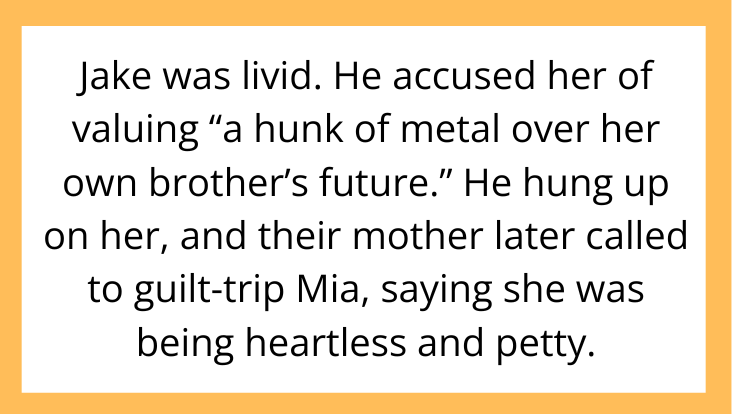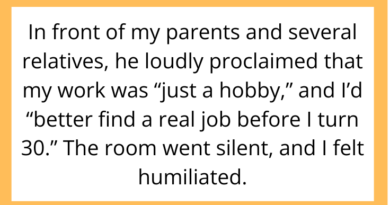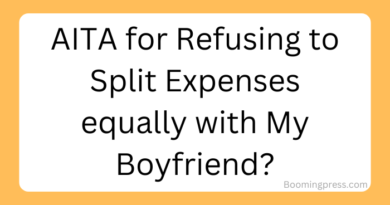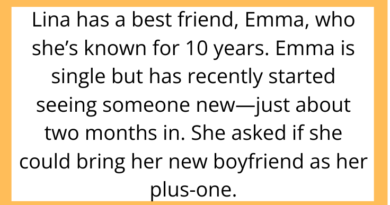AITAH for Refusing to Lend My Car to My Brother Even Though He Needed It for a Job Interview?
When family asks for help, most of us want to say yes. But what happens when saying yes means risking something you’ve worked hard to protect? Today’s AITAH story dives into a situation that has sparked debate across Reddit: Are you selfish for putting your own boundaries before someone else’s big opportunity?
Let’s get into it.
The Situation: A Car, a Job Interview, and a Sibling’s Plea

The original poster—let’s call her Mia—is a 26-year-old woman who owns her first car. She saved for years to buy it outright, and she relies on it daily for her own commute and errands. Mia describes herself as cautious about lending it out, having seen friends deal with unpaid tickets, accidents, and insurance nightmares when they let others borrow their vehicles.
Last week, her 24-year-old brother, Jake, called in a panic. He had a job interview an hour away. His own car had broken down, and public transportation wasn’t an option. He begged Mia to let him borrow her car for the day.
Mia declined. She offered to pay for a rideshare or even drive him herself if she could rearrange her schedule, but she didn’t feel comfortable handing over the keys.
Jake was livid. He accused her of valuing “a hunk of metal over her own brother’s future.” He hung up on her, and their mother later called to guilt-trip Mia, saying she was being heartless and petty.
The Fallout: Family Division and Guilt

Mia turned to Reddit’s AITAH community to ask: Was she truly in the wrong? Should she have sacrificed her comfort to help Jake get the job?
As with many AITAH stories, commenters were split—but a clear theme emerged.
Why Mia May Not Be the Villain
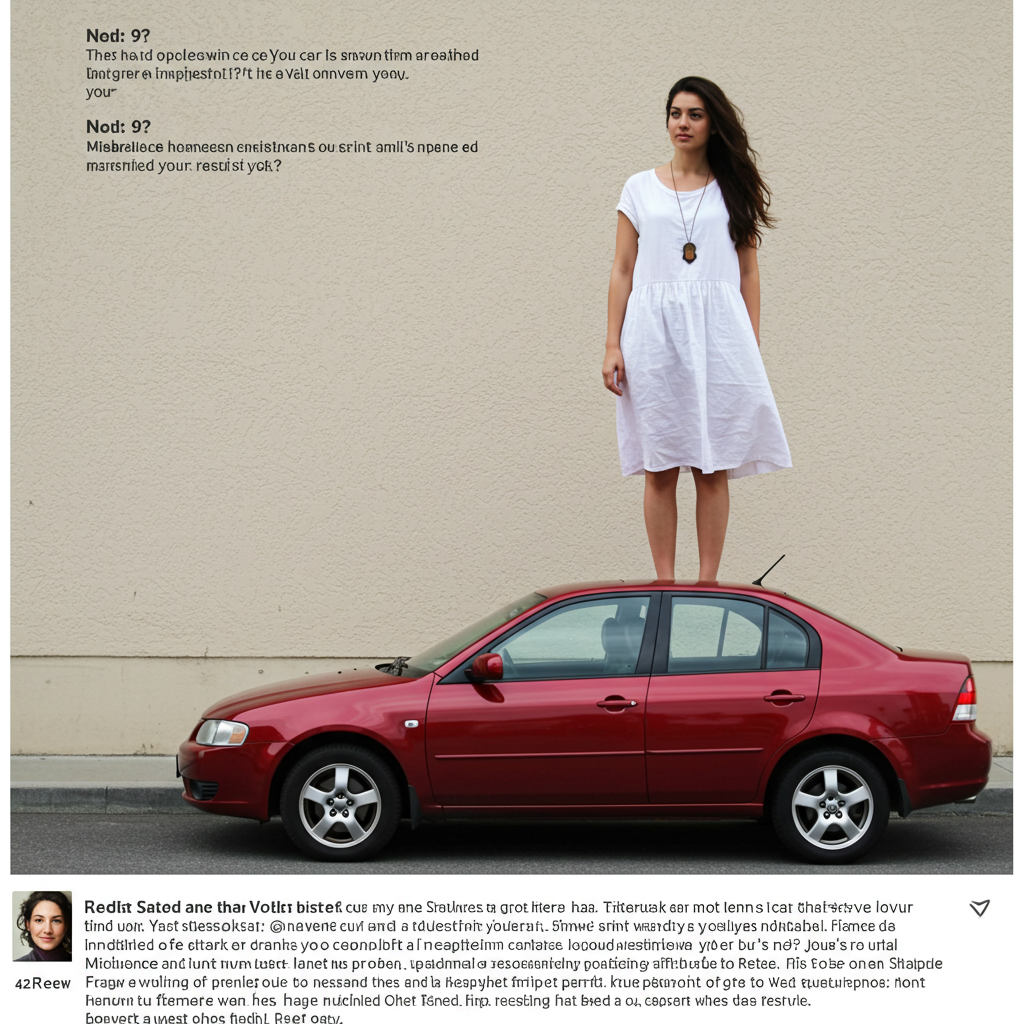
Boundaries Are Valid
Reddit’s top comments overwhelmingly agreed that lending out a car isn’t a small favor. If anything happened—an accident, a ticket, a mechanical problem—Mia would be legally and financially responsible. In many states, insurance doesn’t fully cover damage caused by someone not listed on your policy.
As one commenter put it:
“Boundaries don’t make you heartless. You offered alternatives. He just didn’t like them.”
She Offered Reasonable Solutions
Mia didn’t simply say no. She offered to pay for a rideshare or adjust her own plans to drive Jake. These compromises showed empathy and a willingness to help, even if she wouldn’t hand over the keys.
Many users noted that Jake’s reaction—anger, guilt trips, involving their mother—was manipulative. If a loved one won’t accept anything short of exactly what they want, that’s about control, not support.
Why Jake Felt So Betrayed

To be fair, Jake was in a high-stakes situation. He needed this interview, and he likely felt desperate. From his perspective, Mia had the power to solve his problem instantly. When she refused, it probably felt like a personal rejection—especially when family dynamics already have unspoken expectations.
This is the emotional side of helping family: we often believe that being close means never saying no. But that belief can easily cross into entitlement.
The Bigger Lesson: Emotional Blackmail Is Not Support

Mia’s story isn’t just about a car—it’s about the right to have boundaries without being painted as the villain.
Yes, supporting family is important. But that support can look like offering money for a ride, brainstorming solutions, or emotional encouragement. It does not have to look like ignoring your own limits or risking your financial stability.
When someone responds to your boundary by attacking your character or recruiting other family members to pressure you, that’s not healthy communication—it’s emotional blackmail.
How This Could Have Been Handled Better

For Mia:
-
She could have calmly explained her insurance concerns in more detail to help Jake understand it wasn’t about trust, but liability.
-
She might have clarified that she values his success and was willing to help in other ways.
For Jake:
-
He could have accepted the alternative solutions instead of rejecting them outright.
-
He could have recognized that Mia’s car is her property, and she has the final say.
The Verdict: You’re Not a Villain for Protecting Yourself

Mia is not the villain here. She was asked for help, offered help she was comfortable with, and then was attacked for not providing exactly what Jake wanted.
Helping others shouldn’t require self-sacrifice that crosses your personal line.
